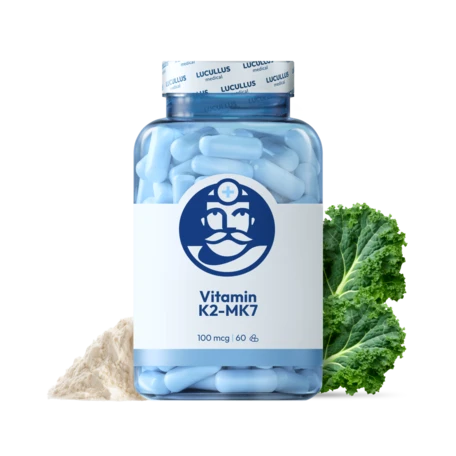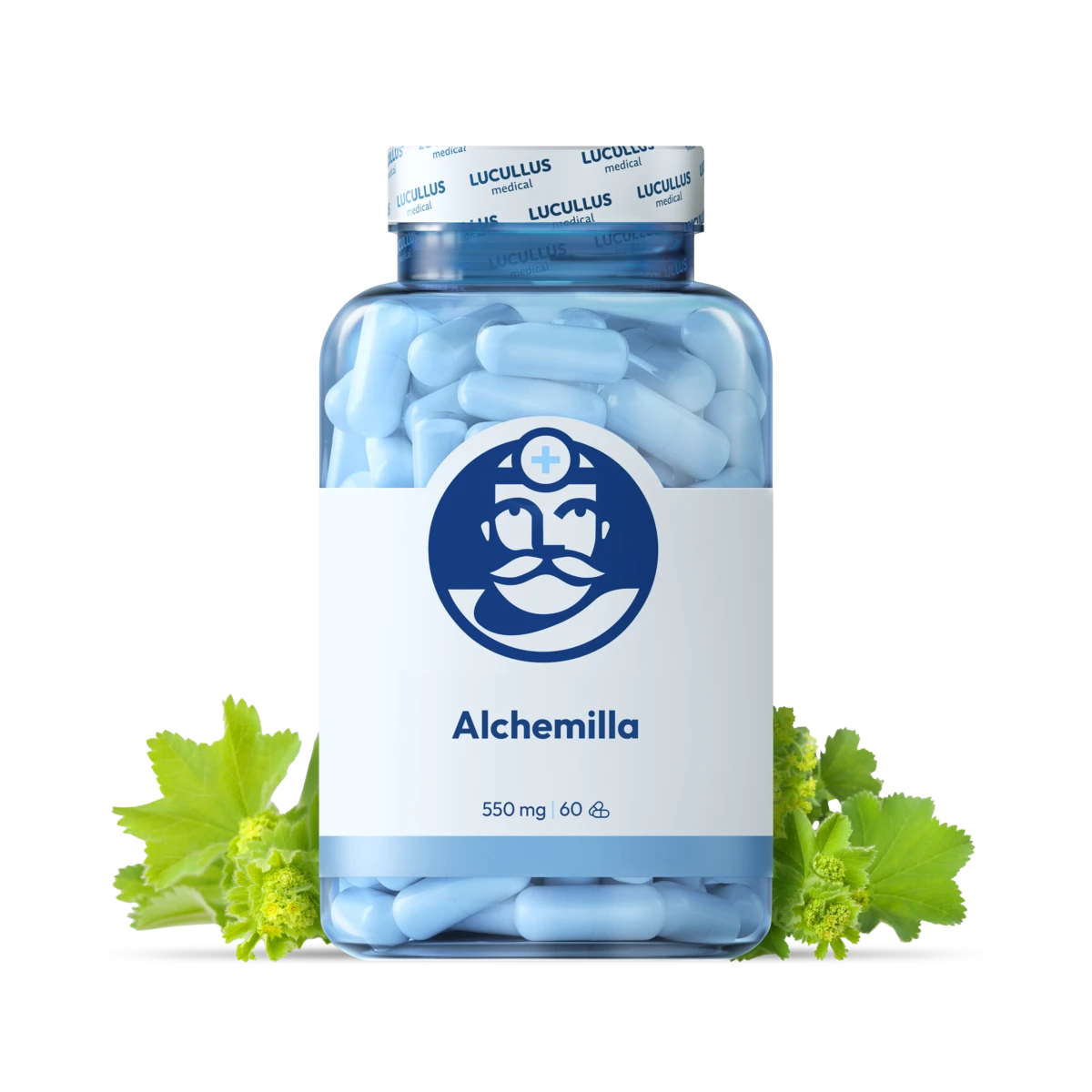
Common Lady's Mantle ... from the past to the present ...
originates from the Latin word " Alchemilla " related to alchemy. Alchemists believed in the miraculous power of water droplets on its leaves "heavenly water," (symbolized purity and nature's mystery), which were supposed to help them achieve eternal youth or transform a common metal into gold. They paid great attention to lady's mantle, which led not only to its naming but mainly to the discovery of its medicinal effects. The present relies on proven health benefits this medicinal plant offers.

Ukľudňujúci Horčík (Bisglycinát horečnatý)
Horčík je dôležitý minerál pre správne fungovanie tela. Názov magnézium pochádza z gréckeho mesta Magnesia, kde bol tento prvok pôvodne objavený už v roku 1755. Je to 8. najrozšírenejší prvok na zemi, tvorí približne 2 % zemskej kôry. Má prirodzene kyslastú chuť, ktorá sa prejavuje aj v minerálnych vodách. Nájdeme ho v každej bunke zelenej rastliny, (ióny magnézia sú prítomné) tiež v každej bunke ľudského tela. Náš organizmus potrebuje magnézium na viac ako 300 biochemických procesov, ako je výroba energie a syntéza nukleových medzí, udržiavanie správneho srdcového rytmu aj krvného tlaku. Ťažko by sme našli proces v tele na ktorý nemá horčík vplyv.

Vitamín C + šípky + bioflavonoidy
Navrhnutý špeciálne pre silnejšie antioxidačné účinky, lepšie vstrebávanie a využitie, kde je v hlavnej úlohe šípky prírodný zdroj vitamínu C . Vitamín C známy ako kyselina askorbová je živina nevyhnutná pre fungovanie nášho organizmu. Naše telo si syntetizuje túto kapustu, esenciálny vitamín, preto je potrebné ho prijať napríklad aj z ovocia a zeleniny, ako sú citrusy, paprika, chren, chren, paradajky.

Vitamín A - a vidím...
Vitamín A - Retinol, bol objavený v roku 1916. Ale až o 15 rokov neskôr bola určená jeho chemická štruktúra. A ďalších 15 rokov trvalo, kým sme sa ho naučili vyrábať synteticky (vo forme acetátu). V obchodoch s výživovými doplnkami je pomerne zriedkavý, čo je zvláštny, pretože jeho nedostatok môže viesť až k šerosleposti.

Reishi - huba nesmrteľnosti
Reishi, huba užívaná už pred 4000 rokmi. Božská huba nesmrteľnosti - v minulosti verili, že dokáže oživiť aj mŕtveho. Svoje významné miesto má najmä v čínskej medicíne (pod názvom lingzhi), kde sa písomne spomína už 200 rokov pred Kristom. Na jej hľadanie boli vyčlenené celú armádu, pretože čínsky cisársky dvor veril, že sa pomocou nej dá namiešať elixír nesmrteľnosti. Slovenský názov vám asi veľa nepovie - Leskokôrovka hnedočervená, je vlastne drevokazná parazitická huba, ktorá žije najmä na zranených stromoch. Má obrovské spektrum biologických látok. Jej účinky sú opísané aj odbornej encyklopédii Huby ako .

Ženská rovnováha dôležitá pre každú ženu
Asi sa zhodneme na tom, že ženské telo a jeho hormonálna rovnováha, je komplikovanejšie, ako telo mužské. Na ženu totiž okrem iného výrazne vplýva aj jej mesačný ženský cyklus. Je preto oveľa dôležitejšie sledovať všetky potrebné látky a hormóny, ak chce žena žiť vyrovnaný, spokojný život či už po stránke zdravotnej, alebo tej psychickej.































